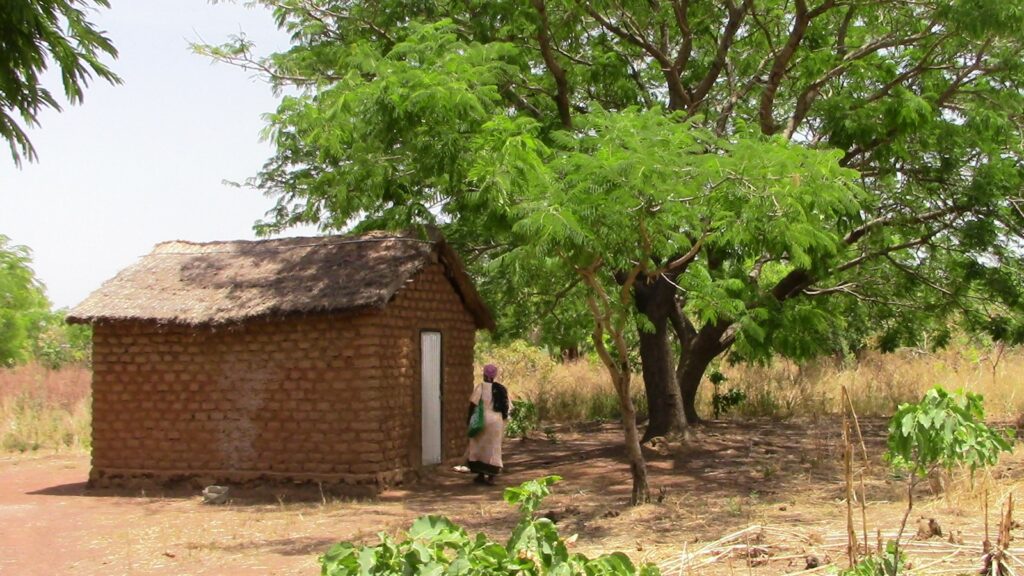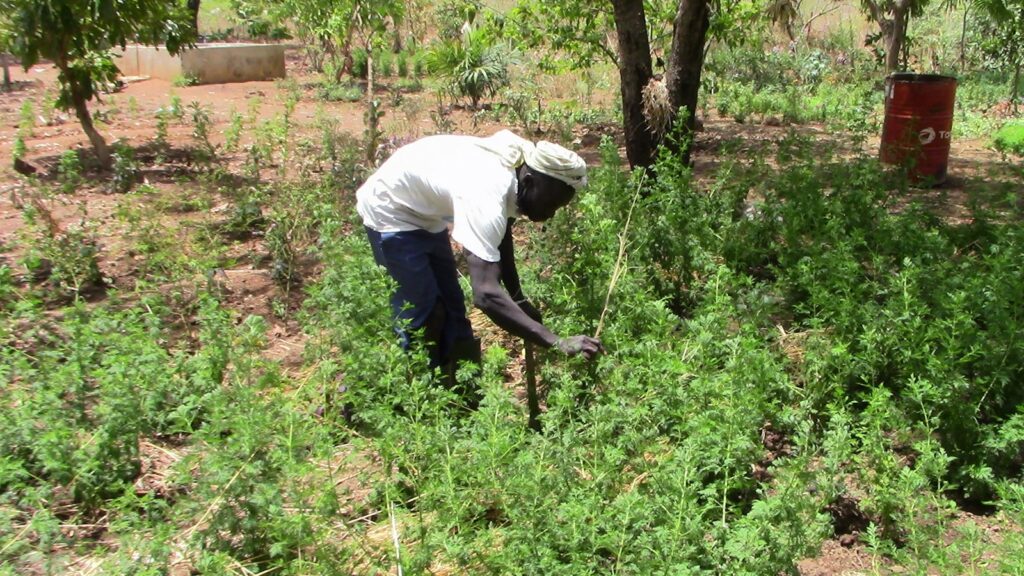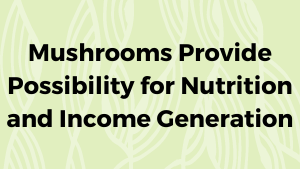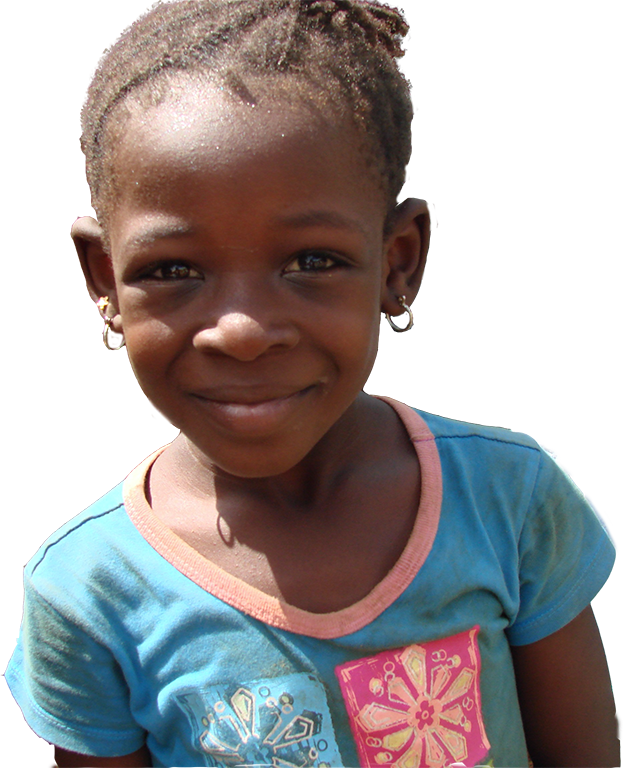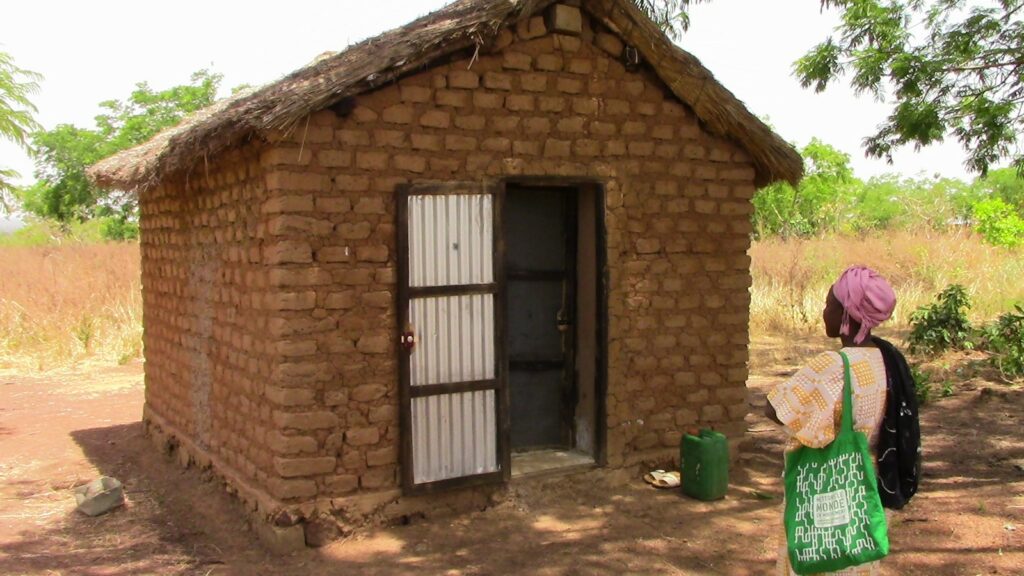
Mushroom Production in Sikasso
Jul. 14 | 2021
In Mali and Burkina Faso there can be challenges for communities to access sustainable food. This can include climate issues, lack of resources, and many more. The Women Association of Sikasso (WAS) are working to change that by embracing training on mushroom production.
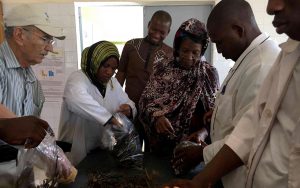
Dr. Khalid, who is a Professor of mycology, plant pathology and physiology at Duke University, started working with the Farmer-to-Farmer program in 2016. In his practice, he shares how mushrooms can be a way of introducing accessible mushroom production to rural communities and create a new source of food.
In remote training, Dr. Khalid worked with WAS to provide them with technical training. In this training they learned about growing conditions, spawn material, building a grow house and selling the product. After the training, recommendations were made for the group to work toward until the next time they reconnect. Some of these include:
- Using polypropylene bags or wide mouth glass jars for spawning containers.
- Use an incubator and room for the spawn on the seed substrate.
- Begin to expand the education and process to other women in the community.
- Build a small mushroom house.
“F2F program just confirms the quote that states: ‘Action speaks louder than words’ means F2F program is a problem solver than a storyteller,” said Alima Traore, COFERSA President.
In a follow up with Bara Kassambara, Mali Country Director, WAS has adopted all of the recommendations and is on their way to almost finishing the mushroom house. Following up is important to the process as the association is able to explain challenges, such as contamination they experienced, then the volunteer is able to prepare and deliver training that is helpful for the group.
In the same area as the mushroom house, a small group of youth began growing Artemisia plants. The plant is a short shrub that typically grows in Northern Africa as well as the Middle East. Oftentimes the stems and leaves are extracted to make tea or oils that are consumed in the form of a drink for its medicinal properties.
People have consumed Artemisia plants in China for over 2,000 years for different diseases, pain, fever, swelling, and can fight parasitic infections. In the 1970s the plant was used to fight malaria by conducting artemisinin based combination therapies. In combination with other substances, the drug is able to reduce the amount of parasites in the body and treat the disease.
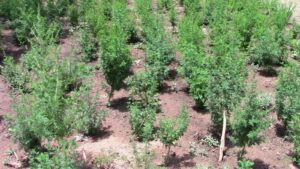
Many communities and the training we do has been greatly affected by the pandemic. During this challenging time we see market prices dropping and the fear of getting COVID-19 is very much alive. It has, “brought a trail of misery and no one didn’t see it coming,” states a report. For this community in particular these are some of the challenges:
- Travel restrictions prevent the product from reaching the client and therefore eliminating income.
- To produce the mushrooms people need to be together but with restrictions in place this cannot be accomplished.
- Raw material prices have increased due to the travel restrictions.
- Overall people are worried about being around others to prevent being infected.
In the past Dr. Khalid worked with the Institute d’Economie Rurale (IER) in Bamako and Association of Women Scientists of Mali (AFSM) where he worked with participants in person (before COVID-19) to build a similar project on mushroom production. Read the full blog following the link below!

